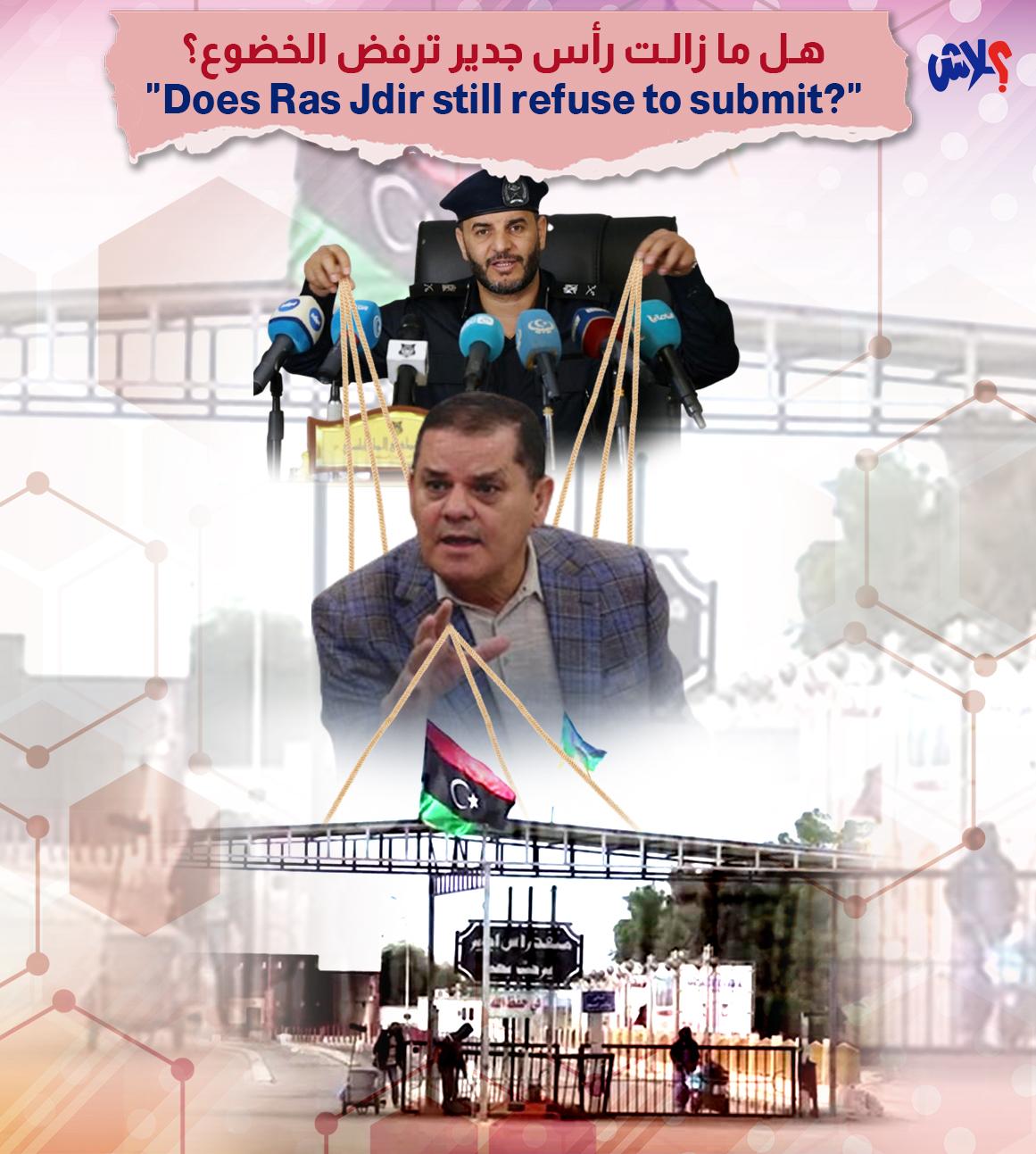"Does Ras Jdir still refuse to submit?"
Popular support is always the deciding factor in any ruling authority’s attempts to gain legitimacy or control over a specific geographical area. History consistently shows that this rule rarely has exceptions, and it has been validated by almost everyone who has tried to manage people's affairs worldwide—except for those who happen to rule Libya.
The ruling authority in Tripoli still hasn't grasped this concept, as evidenced by the ongoing escalation in Ras Ajdir with the city of Zuwara. All attempts by the government to reopen and regulate the border crossing have exacerbated the crisis rather than providing logical solutions, as many observers believe.
After the recent meeting in Tripoli between the municipal council and the "Return of Life" government, an agreement was reached on the mechanism for reopening the Ras Ajdir crossing. The meeting included reasonable requests from the Zuwara municipal council, such as the reinstatement of officers dismissed by Interior Minister Imad Trabelsi, a move seen by many in Zuwara as racially motivated against a particular ethnic group in Libya, unbecoming of a responsible official representing all Libyans.
Our source from the Zuwara Youth Movement, which has been involved in previous efforts to reopen the crossing, indicates that Minister Trabelsi still views Ras Ajdir from the perspective of his affiliation with Zintan, and the past attempts by Zintan leaders to control the crossing. This issue was discussed in our previous analytical article titled "Dbeibeh Vs. Zuwara," where we highlighted the historical dimensions of the actions taken by the Interior Minister in the "Return of Life" government, which have only worsened the situation.
During the aforementioned meeting, the delegation representing Zuwara requested the completion of halted projects in the city related to healthcare and services, which have been significantly lacking for years. They also demanded an end to provocative actions by military forces aligned with the "Return of Life" government, such as shooting at citizens at the Abu Kammash checkpoint, which resulted in a child being injured. Additionally, they highlighted the derogatory remarks made by members of these forces towards the residents of Zuwara, behavior that does not reflect a force representing a state and ruling authority.
Our source confirmed that the Zuwara delegation's message was clear: the crossing is under the official authority of the state and represents all Libyans. The narrative being pushed by the Ministry of Interior is false, and any violations at the crossing are akin to the general security situation in Libya and other border crossings, both aerial and land.
The meeting concluded with promises from the "Return of Life" government to restore calm, and the Prime Minister himself pledged to visit the crossing to facilitate its reopening within the week.
However, just 24 hours after the meeting and the agreement between the government and the Zuwara delegation, Prime Minister Abdul Hamid Dbeibeh, in his capacity as Minister of Defense, declared the Abu Kammash area a military zone. This decision logically entails a series of measures, including the appointment of a military governor for the area, the activation of military protocols, and the sidelining of any civilian institutions, such as the municipal council. Many observers see this move as a precursor to a military escalation, potentially leading to armed conflict in the region, with unpredictable consequences for stability and social peace in western Libya.
Regardless of what might happen in the area, it is clear that the "bone-breaking" approach being pursued by the "Return of Life" government to assert its control is illogical. The government seems unaware that it has lost legitimacy with every party it tries to subdue under its central authority. This sentiment is echoed in the statements of the Zuwara municipal council, who are justified in their stance. On what basis does this government address elected bodies like the Zuwara municipal council as a ruling authority when it lacks the legal legitimacy to justify its actions against those it deems rebellious? The government must act wisely in such situations because its military escalations will have long-lasting repercussions for the residents of the region, while the government itself is temporary.
At the same time, the military and civil authorities managing the Ras Ajdir crossing from Zuwara must acknowledge the severe exacerbation of the crisis. One of the main reasons for the crisis is the accumulation of citizens at the crossing for over 12 hours to enter Tunisia, with some individuals even dying while waiting due to health complications. This situation is exacerbated by the volume of vehicles smuggling goods, which crowd out regular citizens at the crossing, often given priority because of their ties to Zuwara. This results in congestion at the single entry point on the Tunisian side, perpetuating the crisis. Since the closure of the crossing, gasoline has been available throughout the region from Sabratha to Ras Ajdir, something that was previously absent.
Therefore, a comprehensive and balanced perspective is needed to arrive at a logical solution to this crisis.

